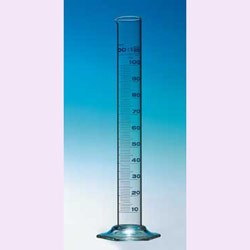 I’m a science geek – always have been, always will be. When I was a kid I had microscopes, telescopes, chemistry sets – anything that allowed me to do experiments. By the time I went to secondary school I was already pretty practically inclined in the laboratory, having done quite a few of the experiments that I was expected to do at school in the garden shed at home. Fortunately I managed to avoid explosions, poisoning, fire and accidentally opening portals to other universes a la Fringe. I appreciate that i was lucky in having parents and an aunt and uncle who actively supported my interest in matters scientific.
I’m a science geek – always have been, always will be. When I was a kid I had microscopes, telescopes, chemistry sets – anything that allowed me to do experiments. By the time I went to secondary school I was already pretty practically inclined in the laboratory, having done quite a few of the experiments that I was expected to do at school in the garden shed at home. Fortunately I managed to avoid explosions, poisoning, fire and accidentally opening portals to other universes a la Fringe. I appreciate that i was lucky in having parents and an aunt and uncle who actively supported my interest in matters scientific.
Articles like this from the BBC, noting that there is inadequate experimental science done in schools, sadden me greatly. In the early 1980s I was involved with writing computer software for schools. It was suggested back then that ‘virtual labs’ could replace some of the practical work carried out, saving money, reducing the need for equipment and also offering health and safety advantages. I was quite a supporter of this idea for a while – thankfully some of my colleagues talked me out of it. They were wise enough to realise that so much of science education is the tactile, the experiential – the smells, sounds and sights of experimentation.
It’s easy to think that there is little value in repeating ‘classic’ experiments – after all, the answer is already known! However, the importance is in understanding what theories the experimental results supports and in learning how to actually do an experiment – the theory and practice of the scientific method. And there’s enormous value to be obtained in experiments when, despite care and attention, the results aren’t what’s expected – that is when true scientific investigation can begin at any age.
Unless we do something to re-discover the rich practical experiences offered to science pupils 20 or 30 years ago, it’s inevitable that the standing of this country in terms of research and industry will falter. We cannot built a modern scientific and technological economy based purely n the ‘soft science’ that seems to be offered in today’s classrooms. Whilst it’s useful to be able to debate the pros and cons of social policies on scientific issues, it’s equally important to be able to identify fallacies in scientific arguments, and perhaps even put together simple experiments to demonstrate complex issues – after all, ‘hands on’ experiences tend to cement learning.
A breathtaking example of how simple, practical science brings home concepts was given by the late Richard Feynman during the enquiry in to the explosion that destroyed the Challenger space shuttle. In a simple experiment involving ice water and a piece of rubber, he showed that at low temperatures the rubber (which was the material used as O ring seals on the booster rockets of the Challenger) became hard and distinctly un-rubbery, and was no longer fit for purpose. He cut through months of bullshit in 5 minutes, in an experiment of elegant simplicity and with a little showmanship. The perfect demonstration of scientific principles applied to solving a major engineering disaster.
My own contribution to trying to make science a more practical business for both school and home is a new web site I’m starting up called Hands On Science. It’s hopefully going to be full of experiments and demonstrations that can be done with the minimum of equipment but that demonstrate in an interesting way many scientific principles. It’s only just started up, but I’d welcome comments over the weeks to come – and ideas!
